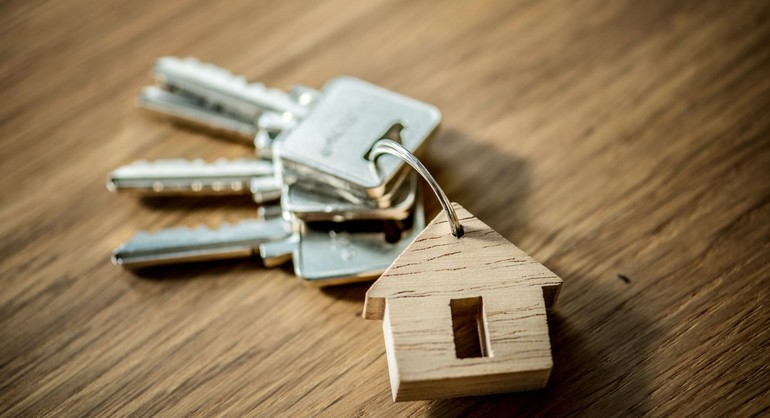Buying or selling a home: what taxes do you have to pay?
Buying or selling a house is a very important moment in one's life. And, eager to bring to fruition their real estate dream, we often forget that the operation of buying and selling determines the need to pay some taxes, with benefits provided for the first home. Let's summarize them together.
Taxes to be paid by those who buy
When you buy a house, the taxes to be paid change depending on whether the seller is a builder or a private individual.
In the first case, the buyer will pay VAT if the builder is selling within the first 5 years of the construction or renovation deadline. If, on the other hand, more time has elapsed, the company can subject the sale to VAT only if it indicates this choice in the preliminary purchase or in the notarial deed: the tax will be 10% (22% if the property is luxury). Registration, mortgage and cadastral taxes will be applied to the extent of 200 euros each.
In the second case, instead, the purchaser will have to pay registration tax at the rate of 9% on a taxable base calculated on the cadastral value, determined in turn by multiplying the cadastral income revalued by 5%, by a coefficient equal to 110 for the first house and its appurtenances, and 120 for other buildings. Mortgage and cadastral taxes are levied in the fixed amount of 50 euros.
First house concessions
If, however, the purchase is of a property qualifying as a first home, taxes are payable in a significantly reduced amount, with a discount provided both in the case of purchase from a manufacturer, and from a private person.
In particular, in the case of purchase from a private individual or from a company that does not apply VAT, the registration tax will be reduced to 2%, while the mortgage and cadastral taxes will be collected to the extent of 50 euros each. In the case of purchase from a company subject to VAT, the tax falls to 4%, while registration, mortgage and cadastral taxes will be paid in the amount of 200 euros each.
Taxes to be paid by those who sell their house
And who, instead, is selling the house?
In this hypothesis, the issue can only lead us to the need to assess the capital gains, or the possibility that at the time of sale there is a positive difference between what is received for the sale and what was originally spent for the purchase or construction of the property.
The capital gain, however, is subject to taxation only if it derives from a sale of real estate that has been purchased or built not more than five years ago, inserting this income in the income declaration among the various incomes, with consequent subjection to the ordinary IRPEF rates. Alternatively, it is possible to opt for a 26% substitute tax, subject to a declaration to be made at the notary's office, who will note this choice on the deed of sale.
Taxes to be paid by those who buy
When you buy a house, the taxes to be paid change depending on whether the seller is a builder or a private individual.
In the first case, the buyer will pay VAT if the builder is selling within the first 5 years of the construction or renovation deadline. If, on the other hand, more time has elapsed, the company can subject the sale to VAT only if it indicates this choice in the preliminary purchase or in the notarial deed: the tax will be 10% (22% if the property is luxury). Registration, mortgage and cadastral taxes will be applied to the extent of 200 euros each.
In the second case, instead, the purchaser will have to pay registration tax at the rate of 9% on a taxable base calculated on the cadastral value, determined in turn by multiplying the cadastral income revalued by 5%, by a coefficient equal to 110 for the first house and its appurtenances, and 120 for other buildings. Mortgage and cadastral taxes are levied in the fixed amount of 50 euros.
First house concessions
If, however, the purchase is of a property qualifying as a first home, taxes are payable in a significantly reduced amount, with a discount provided both in the case of purchase from a manufacturer, and from a private person.
In particular, in the case of purchase from a private individual or from a company that does not apply VAT, the registration tax will be reduced to 2%, while the mortgage and cadastral taxes will be collected to the extent of 50 euros each. In the case of purchase from a company subject to VAT, the tax falls to 4%, while registration, mortgage and cadastral taxes will be paid in the amount of 200 euros each.
Taxes to be paid by those who sell their house
And who, instead, is selling the house?
In this hypothesis, the issue can only lead us to the need to assess the capital gains, or the possibility that at the time of sale there is a positive difference between what is received for the sale and what was originally spent for the purchase or construction of the property.
The capital gain, however, is subject to taxation only if it derives from a sale of real estate that has been purchased or built not more than five years ago, inserting this income in the income declaration among the various incomes, with consequent subjection to the ordinary IRPEF rates. Alternatively, it is possible to opt for a 26% substitute tax, subject to a declaration to be made at the notary's office, who will note this choice on the deed of sale.






